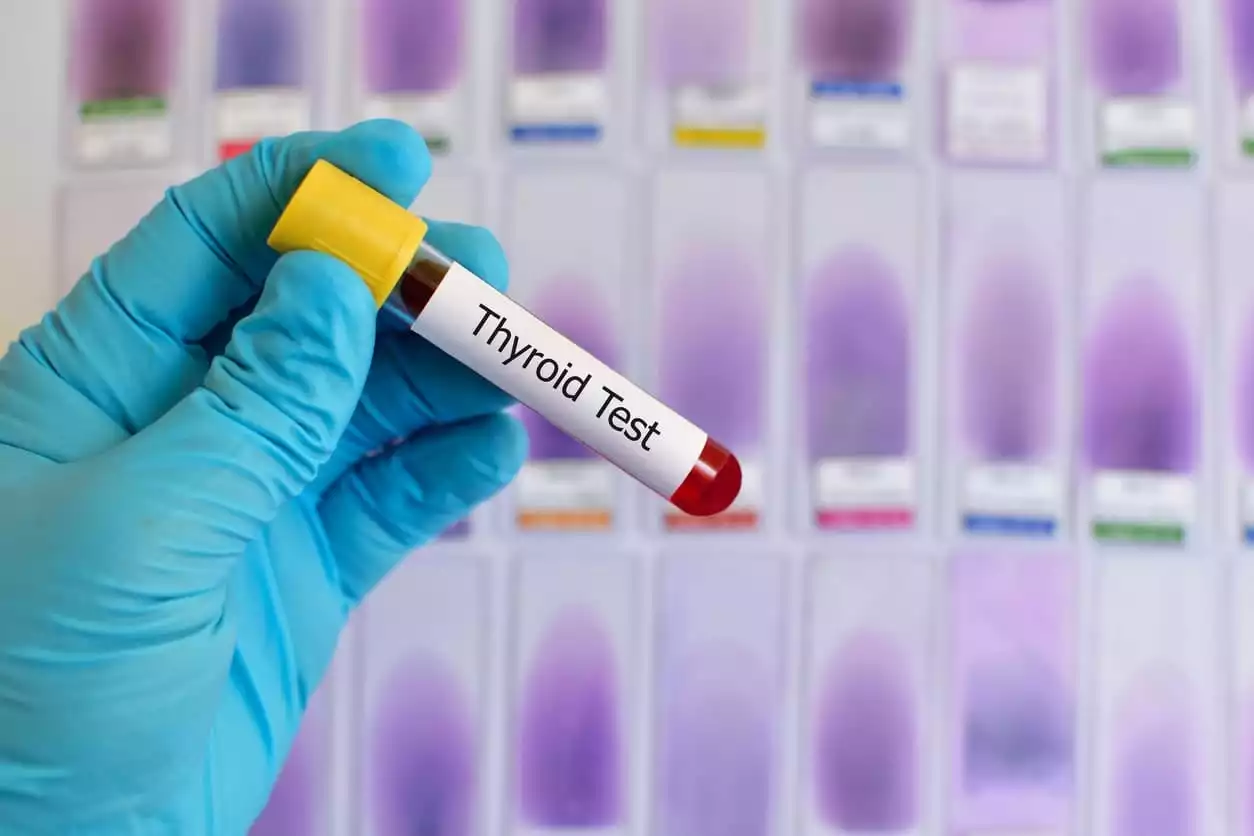
A staggering 200 million people suffer from thyroid problems – with 50% remaining undiagnosed. Can compounded medication help your thyroid disorders?
Thyroid disorders can be a real drag, both figuratively and literally. The thyroid, a tiny gland nestled into the tissue at the base of your neck, is directly responsible for modulating everything from metabolism through heart rate and even how much energy you have.
When it goes awry, patients experience disturbing and troubling symptoms that can range from slightly bothersome to downright dangerous.
Treating thyroid disorders is often difficult; even miniscule adjustments can skew function too far in the other direction. This is especially true for patients who are prescribed commercial medications available in specifically formulated doses.
What works for one person may not work at all for another. That’s where compounded medications come in.
The information in this short guide will help you better understand your thyroid condition and how compounded medications can help.
How Does the Thyroid Work?
First, let’s talk a bit about how the thyroid works.
The thyroid gland is an essential part of your endocrine system, producing hormones called Triiodothyronine (T3) and Thyroxine (T4).
These two hormones are directly responsible for:
- Respiration
- Heart rhythm
- Cholesterol levels
- Central Nervous System (CNS) function
- Peripheral Nervous System (PNS) function
- Weight gain, weight loss, and metabolism
- Muscle development and/or muscle strength
- Female reproductive health (including menstruation)
- Basal temperature, body temperature and/or fever control
When your thyroid doesn’t work correctly, any one or more of these systems can break down or lose their ability to function correctly.
We’ll talk a bit about symptoms in the next section, but the main takeaway here is that when T3 and T4 levels are off-kilter, it can make you feel very, very sick.
What Are the Symptoms of Thyroid Disorders?
The only way to know for sure if you have thyroid disorders is to seek blood testing, and potentially, imaging, to judge T3 and T4 levels in your body.
But there are a few classic symptoms doctors use to point them in the right direction when diagnosing a potential thyroid issue.
These symptoms include:
- Extreme Exhaustion – this symptom is often caused by hypothyroid disorder, and doesn’t produce enough hormones to correctly modulate energy. You may feel as if you have a constant low-grade flu.
- Sleeplessness – often a symptom of hyperthyroid, it produces too many hormones due to autoimmune disorders or other illnesses. Patients with this symptom often report persistent insomnia, despite interventions.
- Dry Skin – rough patches of skin that itch and crack can be caused by thyroid disorders, especially if you have hypothyroid. That’s because thyroid hormones increase adrenaline and cortisol, both of which can cause dehydration when levels are too high.
- Weight Gain or Weight Loss – Patients with hypothyroid tend to experience weight gain, while patients with hyperthyroid often experience weight loss. This is because T3 and T4 directly influence metabolism.
- Weakness – Feeling weak, shaky, or unstable can also be a symptom of thyroid disorders. Again, this happens because the thyroid spurs on or reduces levels of other hormones in the body, causing systemic symptoms.
- Swelling and Edema – Puffiness in extremities and the face is a classic sign of hypothyroid. Low levels of T3 and T4 hamper circulation and heart beat rhythm. This leaves excess fluids to pool in your face, hands or feet. Swelling around the ankles is especially common, as is a round, moon-like face.
- Anxiety and Depression – the thyroid’s ability to influence mood is well-demonstrated. It is extremely common for patients to report feeling sad, angry, or anxious nearly all the time; often, the mood change experienced tells us a lot about whether hormones are too high or too low. For example, patients with hypothyroid are more likely to experience depression, while patients with hyperthyroid are more likely to experience anxiety.
This list of symptoms covers the basics, but it’s far from exhaustive.
How Compounding Medication Helps Thyroid Disorders
Don’t be afraid to speak with your pharmacist if you think you may be experiencing an issue.
We mentioned above that compounding is extremely useful for treating thyroid disorders because it’s so easy to control the dose of hormones given. But that’s really just the beginning of the story; here’s the rest.
In a compounding pharmacy, pharmacists make custom medications for each patent from scratch. They can take base ingredients and mix them together down to the microgram, tweaking your meds to resolve your symptoms and condition without causing heavy side effects.
Moreover, the pharmacist has the option to use any combination of medications, fillers, and substances to find what works best for you, not just for the average patient.
One of the biggest benefits in compounded thyroid medication treatments is the fact that pharmacists aren’t limited to synthetic substances like Armour Thyroid. Instead, they have access to bio-identical hormones the body is much more likely to recognize, utilize, and accept as a substitution.
Why is this important? There is some evidence to show that patients who do not respond to synthetic medicines may respond to bioidenticals.
Other patients simply prefer the more natural approach. Many choose to stick with bioidenticals to avoid what they perceive as chemical treatments.
Taking Compounded Thyroid Medications
When your doctor prescribes thyroid medications, he or she recommends a specific dose of medicine to address your specific T3 and T4 levels. If they choose a commercial pill, they prescribe the closest possible amount to fit your levels, but it’s rarely exact.
If you’re interested in taking compounded medications instead, all you have to do is drop by your local compounding pharmacy with your prescription in hand.
Ask your pharmacist to review your prescription and inform them about your interest in compounding. He or she will then identify the exact dose you need, compound it from scratch, and send you home with specific instructions to follow.
Often, it takes a week or two to determine whether the dose is truly right for you.
For this reason, your pharmacist may ask you to report back to them on a specific schedule. If the dose isn’t resolving your symptoms, or you are having extreme side effects, they can tweak the drug to make it safer and more effective.
Other Compounding Benefits
Some patients also find thyroid medications difficult to take, especially if they’re in the form of a pill. Or, they may find their medications taste awful, get stuck in their throat, or irritate their skin (in the case of topicals).
Note that compounding pharmacies can also change the format of your medication, changing it to include patches, creams, and dissolvable lozenges.
You don’t need to struggle with medication compliance anymore; with compounding, your medication can be tailored to fit your lifestyle, your needs, and your desired method of treatment.
Get started by speaking with your pharmacist today.

 info@burtsrx.com
info@burtsrx.com

